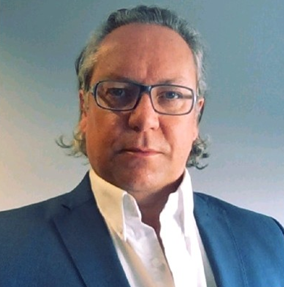Complex problems, conflicting ideas, and the feeling that things are spinning out of control. It’s easy to get bogged down in negativity, but what if we shifted our focus?
This article by Dr Morne Mostert, originally published in Business Day, takes a critical look at some of our biggest challenges and proposes a new way forward:
The Economist has dubbed 2024 as the “Biggest Election Year in History” with over 64 countries holding elections in 2024 as outlined by Time Magazine.
And I, for one, am sick of the idiots winning.
You see, it is easy to be overly critical of global forums like Davos.
The power. The perceived elitism. The suspicion of vested interests in the status quo.
Despite these (and more) diverse perceptions, such forums play a vital role in shaping our collective future. Indeed, if global decision-makers were not connecting and highlighting the major forces shaping our collective futures, it is highly likely that commentators would be considerably less critical.
It then follows that sense-making of the global theatre is more complex than the optimism I am failing to hide. It’s crucial to recognise the value these gatherings bring in connecting decision-makers to address our world’s complex challenges.
As any decent advisor on Strategic Foresight will understand, the trends are simply the text. Sense-making demands reading the context, but also the sub-text and pre-text. To make sense to the point of finding opportunities for global redesign, we must furthermore explore the forces which may have precipitated these trends, as well as the counter-trends inspired by the dominant shifts.
For instance, while Guterres reminds us that faith in governments may be waning, a counter-trend is emerging: citizens are gaining a greater sense of agency, empowered by technology to provide real-time feedback. This dynamic interplay between government action and citizen involvement highlights the evolving landscape of governance and public participation. Many governments are entirely deserving of their deteriorating reputations. This dynamic interplay between government action and citizen involvement highlights the evolving landscape of governance and public participation.
It would be considerably worse if people continued to trust in archaic voting cycles, given the opportunity for real-time feedback to governments afforded by 21st century technology. von de Leyen (President of the European Parliament) acknowledges that, while “governments hold many of the levers”, business brings innovation – an apparent departure from work by Mazzucatto on the Entrepreneurial State.
While the International Monetary Fund (IMF) has flagged geopolitics and fragmentation as significant threats to financial stability, the reality is that globalisation is a complex force that cannot simply be reversed. We want to buy our favourite wine and fruit throughout the year, despite the lack of local supply. Yet, this same globalisation contributes to rising inequality, a challenge acknowledged by leaders and institutions alike.
Kristalina Georgieva, Managing Director of the International Monetary Fund (IMF), bemoans the ‘divergence’ (i.e. inequality), but her organisation inspires both countries and individuals to become wealthier, thus exacerbating the rise of inequality, according to some far-leftist ideologues, at least. And, once again, we all defend our current wealth, and typically aspire to higher levels of wealth for ourselves. All while joining the global call for ‘equality’. Even Houngbo (ILO), explains the risk of poverty mainly as a threat to prosperity – the kind of financial resilience and mental well-being we would all prefer to enjoy.
Climate change presents a similar paradox. We bewail the realities of it while failing to notice how our aspirations for luxury and convenience often contribute to the very environmental issues we aim to solve. And almost all our pension funds are invested in carbon-intensive industries – a claim I make with little fear of contradiction due to the opaque and layered nature of global investment instruments.
The circular circus does not end here. The calls for ‘less talk; more action’, as an example, are always expressed by people who seem to talk an awful lot, while the ‘culprits’ take strategic action in their own interests without fail. And the latter seem to be succeeding!
This is where the role of a strategist becomes critical. Strategists are not just observers of global trends; they are actively engaged in crafting pathways to success, driven by a desire to see meaningful progress in addressing the world’s most pressing issues.
I personally work as a strategist mainly because I want you – the readers of papers like these – to win. I am sick of the idiots winning.
The Economist has dubbed 2024 as the “Biggest Election Year in History” with over 64 countries holding elections in 2024 as outlined by Time Magazine. And this presents us with a crucial opportunity.
Will the allure of Artificial Intelligence trump (deliberate!) the reality of pervasive and relentless Natural Stupidity? The current model can only produce the current future. Incremental improvements will never get us there. Mindsets of Pro-silience (inventing forward) must be selected over resilience (vainglorious Putinesque attempts at bounce-back). One clear opportunity is found in the inventive education of senior decision-makers who are imaginative about reinventing the future itself.
Creative, futures-based decision-making is no longer optional.
It is a matter of global survival.
Dr Morne Mostert is a global advisor on Strategic Foresight and decision-making for senior leaders. He was appointed by President Ramaphosa as Commissioner on the national Planning Commission. He is the inventor of the Mindset Index, a world-first scientific instrument for strategic decision-making. He is a full member of the Club of Rome, and is the author of Systemic Leadership Learning – Leadership Development in the Era of Complexity.
Read the Business Day article here.
written by





